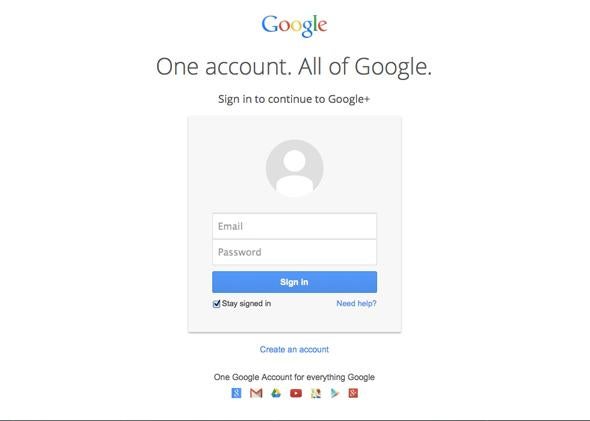Google Plus is more than a social network. It’s an identity service. That’s why Google hasn’t seemed particularly bothered when people rag on Plus for being a backwater, or push back about forced Google Plus integration. Google gets a lot out of information out of knowing who you are when you create content online and do other Internet-y things, and it’s not giving that up.
But is there something afoot? A recent New York Times story about Plus says:
Before Google released Plus, the company might not have known that you were the same person when you searched, watched videos and used maps. With a single Plus account, the company can build a database of your affinities.
Bradley Horowitz, the vice president of product management for Google Plus, tells the Times, “Google Plus … gives Google that common understanding of who you are.” That sounds terrifying, which is why ValleyWag headlined its story, “Google Admits Google+ Was Just A Ploy To Track Your Behavior Online.”
But Horowitz isn’t really admitting anything. Google has been up front about this strategy for 10 years, which in tech time is pretty much an eon.
It’s true that since Plus came on the scene in June 2011, Google has focused significant development power on integrating data from Plus so it can sell more targeted ads and figure out whether you’re searching for Owen Wilson the celebrity or Owen Wilson your high school friend. But Google was on to you long before Plus ever came along, and your central Google login could endure if Plus were to suddenly disappear tomorrow.
In the last cross-service Google privacy policy before Plus, published in October 2010, Google clearly outlines its desire and ability to track a user across services and synthesize the data freely for advertising, search optimization, content harvesting, or anything else.
When you sign up for a Google Account, we ask you for personal information. We may combine the information you submit under your account with information from other Google services or third parties in order to provide you with a better experience and to improve the quality of our services.
If you click the “Google Account” link, you’re taken to a definition that explains:
You may access some of our services by signing up for a Google Account and providing us with some personal information (typically your name, email address and a password). This account information will be used to authenticate you when you access Google services.
Wait, that sounds kind of like that other thing. But it was 2010, six months before Plus debuted. It would be reasonable to think that Google knew what was coming and the company was just setting the stage. Except there has been similar language about Google tracking your data as an individual since the July 2004 privacy policy.
If you have an account, we may share the information submitted under your account among all of our services in order to provide you with a seamless experience and to improve the quality of our services.
That sounds pretty much … exactly the same. And even if Google Plus were the kernel of an idea in 2004 (which it probably wasn’t), it certainly wasn’t fleshed out enough to merit a placeholder in the privacy policy. Google has known who you are and what you were doing all along and has been tracking it. Plus is just the tip of an enormous data iceberg.
